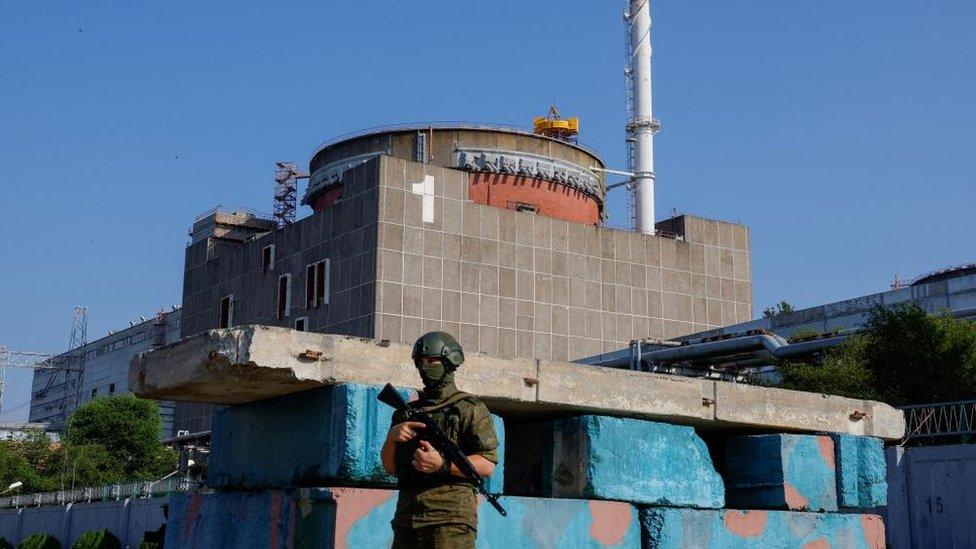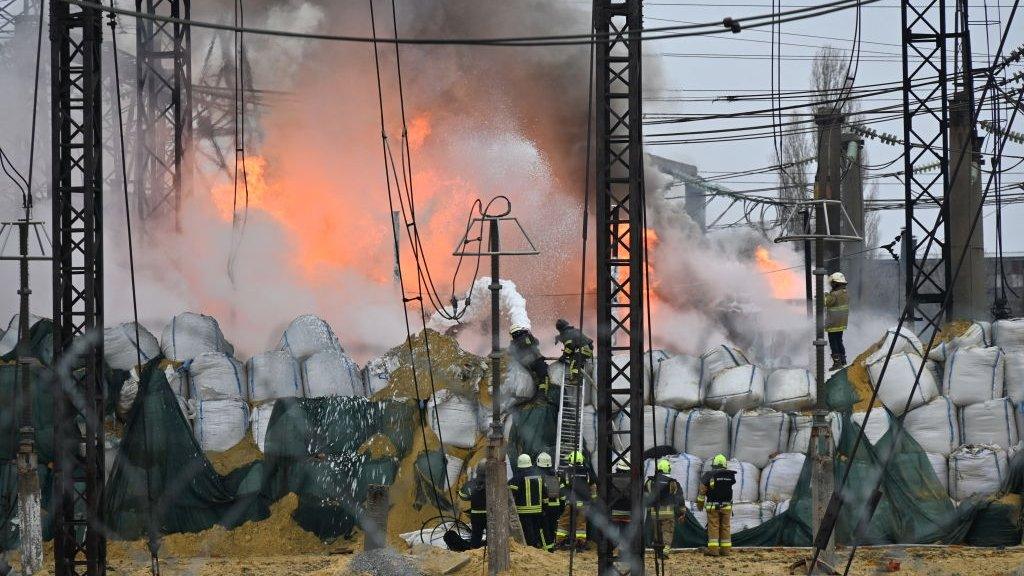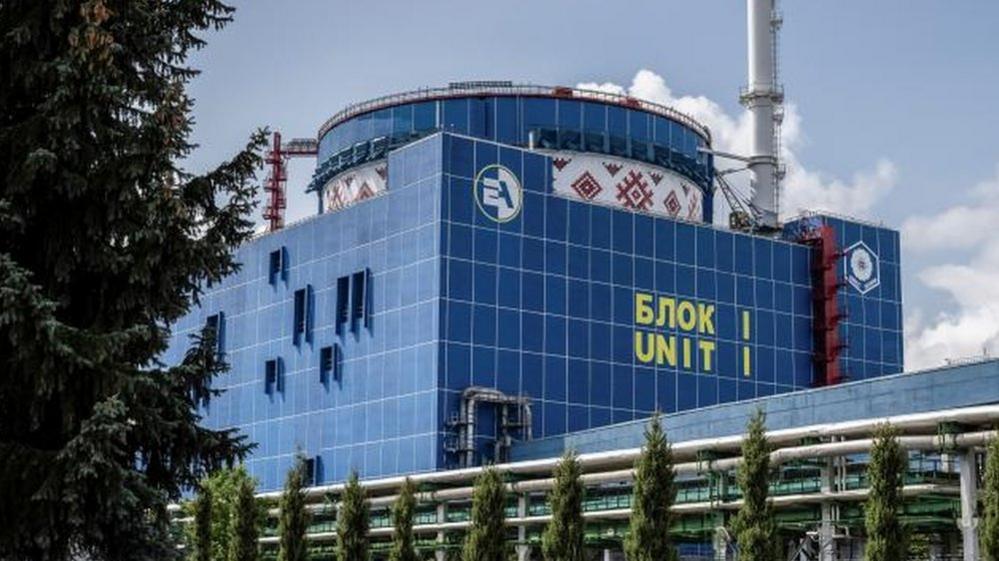Ukraine war: UN body urges restraint after Zaporizhzhia nuclear plant hit
- Published
- comments

Russia has occupied the Zaporizhzhia nuclear plant since early 2022 (file photo from June 2023)
A new drone attack on Ukraine's Zaporizhzhia power plant has raised the risk of a "major nuclear accident", the UN's atomic watchdog has warned.
Russia said Ukraine was behind the attack, which it said injured three people. Ukraine has denied involvement.
The giant Russian-held nuclear plant, with six reactors, is on the frontline of the Russia-Ukraine conflict.
The UN's International Atomic Energy Agency (IAEA) has repeatedly warned against such attacks.
IAEA head Rafael Grossi said Sunday's drone strike was "reckless" and "a major escalation of the nuclear safety and security dangers" facing the plant.
The Zaporizhzhia plant, in southern Ukraine, is the largest in Europe. Russian forces seized it shortly after launching their February 2022 full-scale invasion and have occupied it ever since, alongside most of the Zaporizhzhia region.
The facility stopped generating power in 2022, but needs a constant supply of electricity to cool one of its reactors which is in a state of "hot conservation", meaning it is not fully offline.
The IAEA, which has a team of experts at Zaporizhzhia, confirmed "physical impact of drone attacks" at the plant, including at one of the reactors.
The plant's Russian-installed administration said radiation levels were normal and that there was no serious damage.
The IAEA said the damage had not compromised nuclear safety, but it warned that "this is a serious incident with potential to undermine [the] integrity of the reactor's containment system".
Mr Grossi specified there had been "at least three direct hits" against the plant's "main reactor containment structures".
"This cannot happen," he said. "No one can conceivably benefit or get any military or political advantage from attacks against nuclear facilities. This is a no go."
Both Russia and Ukraine regularly accuse each other of shelling the plant and risking a serious nuclear accident.

The plant's Russian administration has said Ukraine's armed forces were behind the attack, but Ukraine has denied the allegation.
On Monday, Kremlin spokesman Dmitry Peskov said the attacks were a "very dangerous provocation".
Ukrainian Main Intelligence Directorate spokesman Andriy Yusov told the Ukrainska Pravda news website that "Ukraine was not involved in any armed provocations on the site."
The plant is "illegally occupied by Russia," he added.
Mr Yusov accused Russia of endangering the nuclear facility, the civilian population and the environment by carrying out strikes on the plant itself.
Last month the IAEA said its team of experts at the plant had heard explosions every day for a week.
At the time, Mr Grossi said: "For more than two years now, nuclear safety and security in Ukraine has been in constant jeopardy. We remain determined to do everything we can to help minimise the risk of a nuclear accident that could harm people and the environment, not only in Ukraine."
The region of Zaporizhzhia came under fire early on Monday morning. Governor Ivan Federov said three people were killed and three more were wounded after Russian forces struck eight populated areas over 350 times in the space of 24 hours.
Last week, a Russian strike on the city of Zaporizhzhia killed four people and wounded more than 20.
- Published22 March 2024

- Published26 October 2023
